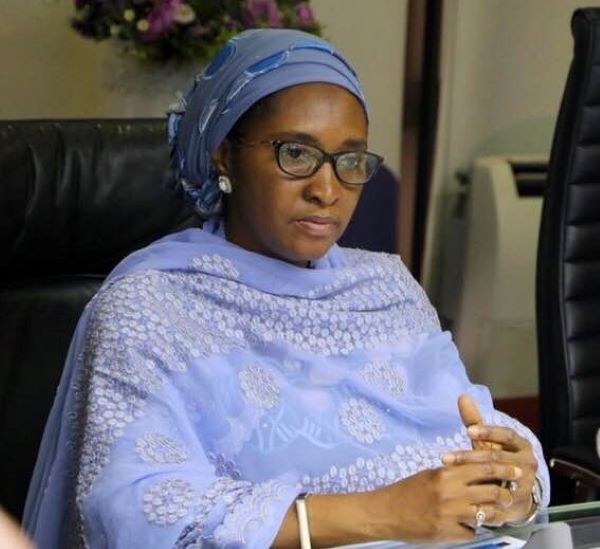National Issues
Fuel Subsidy Removal: Putting Off The Evil Day -By Adewole Kehinde
It is no longer news that the National Economic Council ad-hoc committee interfacing with the Nigerian National Petroleum Corporation (NNPC) on the appropriate pricing of PMS recommended raising the petrol pump price by about N130/140 per litre — from the current N162 to N302 per litre by February, 2022.

After some hours at the National Assembly on Monday, the Federal Government through the Minister of Finance, Hajia Zainab Ahmed, backed down on its plan to remove petrol subsidy.
Immediately I saw the headline and pictures of the meeting, I said to a friend that the APC led Federal Government is confronted with policies and politics of fuel subsidy removal despite provisions for deregulation in the Petroleum Industry Act; ahead of the 2023 elections.
At the same time, some section of the online media went to town to say that the Minister of Finance, Hajia Zainab Ahmed had resigned her appointment.
Even though the Minister of Finance said that the timing was problematic, my question to all the members of the meeting was “Why did the National Assembly pass the PIB and why will the President sign the bill into Law?
According to the World Bank, Nigeria has spent $4.5 billion or roughly 2% of GDP on fuel subsidy in 2021.
Petrol subsidy payments gulped N1.43 trillion in 2021, shrinking revenue accrued to the federation account to N542 billion – a shortfall from the projected N2.51 trillion.
Subsidy or under-recovery is the underpriced sales of premium motor spirit (PMS), better known as petrol.
The details are contained in the Nigerian National Petroleum Corporation (NNPC) presentation to the Federation Account Allocation Committee (FAAC) meeting between January 19 and 20, 2022.
The document showed that Nigeria spent a total of N270.83 billion to cater for the cost of petroleum shortfall in December 2021.
This was the highest cost for the PMS shortfall in the year.
In November and October, fuel subsidy payments stood at N131.4 billion and N163 billion, respectively.
In September, it was 149.28 billion. In August, the under-recovery cost of PMS was N173.13 billion. For July and June, it was N103.28 billion and N164.33, respectively.
In May, the cost of fuel subsidy amounted to N126.29 billion.
Also, in April, March, and February, the under-recovery of PMS amounted to N61.96 billion, N60.39 billion, and N25.37 billion, respectively.
From analysis carried out, subsidy payment has really impacted on the Revenue of the Nigeria National Petroleum Company Limited.
According to the analysis NNPC’s annual gross revenue projection of N4.979 trillion for 2021 dropped by N1.55 trillion to N3.43 trillion for the year.
It is no longer news that the National Economic Council ad-hoc committee interfacing with the Nigerian National Petroleum Corporation (NNPC) on the appropriate pricing of PMS recommended raising the petrol pump price by about N130/140 per litre — from the current N162 to N302 per litre by February, 2022.
According to the committee, the new price proposal will allow the government to fully deregulate the market, eliminating monthly subsidy payments and ensuring fair competition.
Nigerians had made up their minds to accept deregulation of the petroleum sector not until the Senate President, Ahmad Lawan came out to say that Pres. Buhari did not direct the removal of petrol subsidy, saying their “constituents are raising concerns over the policy”.
I was not surprised when the All Progressives Congress threw its weight behind the decision of the Muhammadu Buhari led Federal Government to suspend the removal of subsidy on petroleum products.
I knew that the signing of the Petroleum Industry Act was done to make Nigerians accept the APC-Led Federal Government but seems to be faced with the challenges of deregulation as general elections approaches.
Even though the APC statement issued on Monday and signed by its National Secretary, Sen. John Akpanudoedehe, said the Buhari administration in taking the decision took into cognizance the fact that removing subsidy at this time would heighten inflation and cause undue hardship on Nigerians, one wonders how it sounds to All Progressives Congress that the NNPC Limited pays a whopping N1.43 trillion in 2021 on fuel Subsidy.
I knew very well that the timing issue raised by the APC is because of the 2023 General election rather than the welfare of Nigerians. There was no timing issue when the Petroleum Industry Bill was passed by the National Assembly and there was no timing issue when the President signed it into Law on August 16th, 2021.
Shifting the Deregulation of the Petroleum industry to no definite time is putting off the evil day!
Adewole Kehinde is the Publisher of Swift Reporters based in Abuja. He can be reached via 08166240846, 08123608662


















